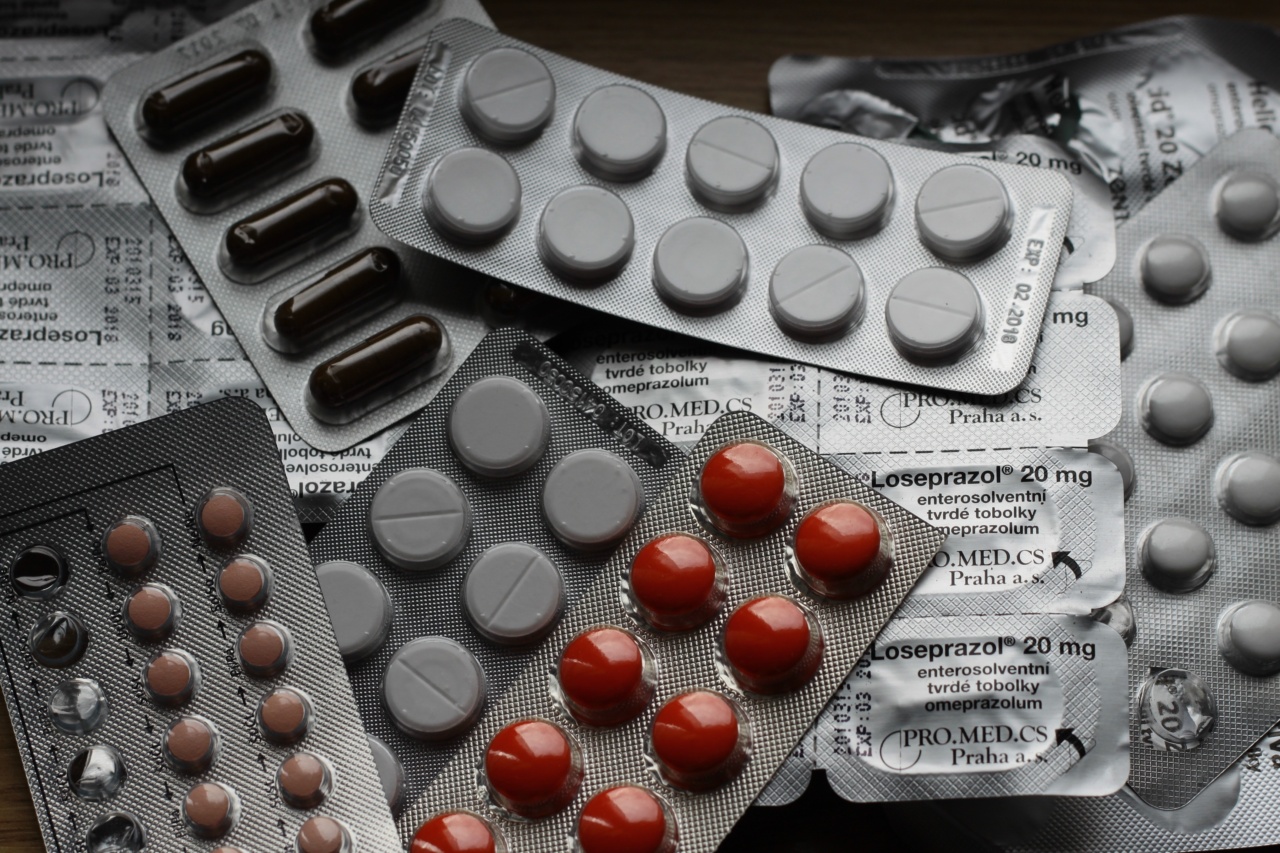Children’s oral health is of utmost importance as it lays the foundation for their overall well-being. However, certain medications that are frequently prescribed or dispensed to children can have a negative impact on their oral health.
These drugs can lead to various dental problems and concerns, which need to be addressed by parents and healthcare professionals alike. It is crucial to be aware of the potential oral health risks associated with these medications and take necessary precautions to minimize their impact on children’s dental well-being.
1. Antibiotics
While antibiotics are essential for fighting bacterial infections, they can also have adverse effects on children’s oral health.
Some antibiotics, such as tetracycline, can cause permanent discoloration of the developing teeth in children under the age of eight. This discoloration ranges from yellowish to brownish and can significantly affect a child’s self-esteem and confidence in later years.
It is important for pediatricians and dentists to consider alternative antibiotics or monitor the developing teeth closely when prescribing such medications.
2. Asthma Inhalers
Asthma inhalers contain corticosteroids, which are effective in managing asthma symptoms. However, these inhaled steroids can lead to oral thrush, a fungal infection in the mouth.
Children using asthma inhalers should rinse their mouths with water after each use to minimize the risk of developing oral thrush. Regular dental check-ups are also essential to detect any early signs of this infection and provide appropriate treatment.
3. Antihistamines
Antihistamines are commonly used to relieve allergy symptoms in children. However, these medications can cause dry mouth, which reduces saliva production.
Saliva helps to naturally cleanse the mouth and neutralize acids, reducing the risk of tooth decay and gum disease. Parents should encourage their children to drink plenty of water when taking antihistamines or consult a healthcare professional for alternative allergy management strategies that do not affect oral health adversely.
4. Attention-Deficit/Hyperactivity Disorder (ADHD) Medications
Children with ADHD often require medications like methylphenidate or amphetamines. These drugs can cause dry mouth, teeth grinding (bruxism), and overall oral discomfort.
Regular dental visits, good oral hygiene practices, and ensuring adequate hydration can help manage these side effects. Dentists should be informed about the child’s medication history to provide personalized recommendations for oral health maintenance.
5. Over-the-Counter Medications
Some over-the-counter medications, such as cough drops or syrups, contain high levels of sugar or acids. Prolonged exposure of the teeth to these substances can lead to tooth decay and erosion.
It is advisable to choose sugar-free or natural alternatives for managing common conditions like cough and cold. Additionally, teaching children to drink water or rinse their mouths after consuming any medicated products reduces the risk of dental problems.
6. Epilepsy Medications
A number of epilepsy medications can affect gum health and cause overgrowth of gum tissue (gingival hyperplasia). This condition makes oral hygiene difficult, leading to plaque accumulation and gum disease.
Regular dental care, meticulous oral hygiene practices, and professional cleanings are essential to manage gum overgrowth effectively and prevent further complications.
7. Cancer Treatments
Cancer treatments, such as chemotherapy and radiation therapy, can have severe effects on children’s oral health.
These treatments may cause oral mucositis (inflammation and ulceration of the oral mucosa), dry mouth, infection, and delayed dental development. It is crucial for children undergoing cancer treatments to receive comprehensive oral care before and during the treatment to minimize the impact on their oral health and prevent long-term complications.
8. Anti-Seizure Medications
Some anti-seizure medications, such as phenytoin, can cause gum overgrowth similar to that seen with epilepsy medications. This gum overgrowth can result in poor oral hygiene and difficulties in maintaining oral health.
Close collaboration between healthcare professionals, including dentists and pediatricians, is necessary to monitor and manage any adverse oral effects of these medications in children.
9. Steroids
Steroids, such as prednisone, are commonly prescribed for various medical conditions. However, they can cause delayed tooth eruption, oral infections, and other dental problems.
Children receiving long-term steroid therapy should have regular dental check-ups to identify and address any oral health issues promptly.
10. Immunosuppressants
Children who undergo organ transplants or require immunosuppressants for other medical reasons are at increased risk of oral infections, gum problems, and delayed tooth eruption.
Maintaining excellent oral hygiene, regular dental visits, and close collaboration between healthcare professionals are crucial to minimize the impact of these medications on children’s oral health.




























